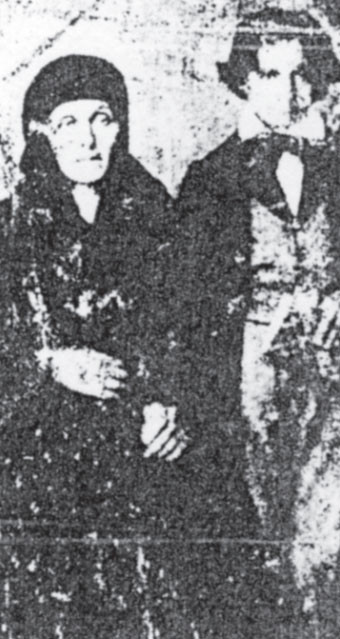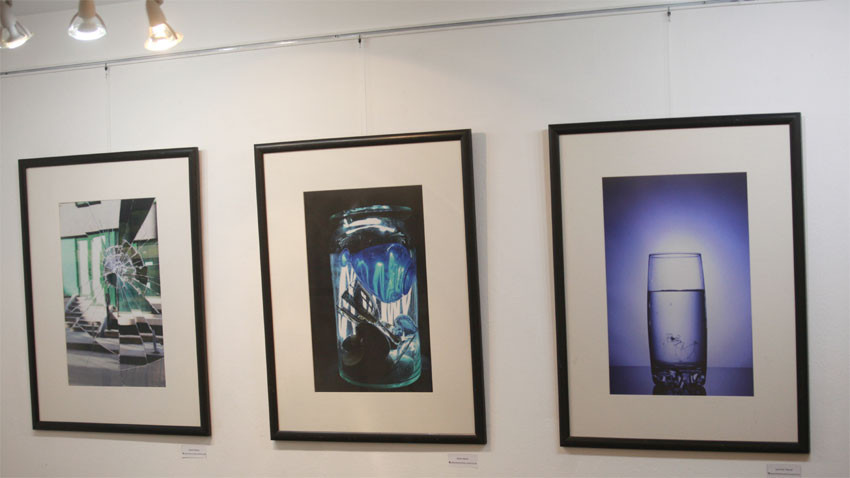
Humankind’s dream to be able to capture images on a photosensitive surface goes back a long way, maybe to the 5th-4th century BC, perhaps even earlier. In our day we all enjoy experimenting with the infinite variety this dream-come-true has to offer – photography. The word comes from Greek and means “drawing with light”. In time, we have come to regard photography as an element indispensable to graphic arts.
 The first photograph of Bulgarians that has come down to us from 1842-1843, it was taken in Vienna and is of Revival-time enlightener Todor Minkov with his mother. The first Bulgarian photographers worked in Central Europe and the major towns of the Ottoman Empire, and in 1897 the first Bulgarian amateur photographic society was set up in Sofia with chairman Vasil Zlatarski. The beginnings of photojournalism, in which news photography predominated, go back to the turn of the 20th century, at the same time as the first colour photographs in the country.
The first photograph of Bulgarians that has come down to us from 1842-1843, it was taken in Vienna and is of Revival-time enlightener Todor Minkov with his mother. The first Bulgarian photographers worked in Central Europe and the major towns of the Ottoman Empire, and in 1897 the first Bulgarian amateur photographic society was set up in Sofia with chairman Vasil Zlatarski. The beginnings of photojournalism, in which news photography predominated, go back to the turn of the 20th century, at the same time as the first colour photographs in the country. 
Fine art photography was born, and in 1957 it was recognized as a form of art in Bulgaria. Interestingly, the first Bulgarian colour photographs for scientific purposes were taken in 1955, and two years later the first medical science colour film was shot. As time went by photography gained popularity in all spheres, and the names of a host of talented photographers have gone down in the history of documentary, science, fine art, and nowadays – business photography.
Interest in the art of photography as a professional occupation now is even greater. The intricacies of the science and craft of photography are taught at the prestigious National High School of Polygraphy and Photography. The school was founded as a secondary school of book printing and graphic arts in 1923, and continues to be high up on the list of most preferred educational establishments in the country. It is one of but a few schools in Bulgaria which opens the doors to a successful professional career after completion of secondary education. The string of prominent figures who have graduated the school are an indication of the high standard of admission and teaching.

This year the school celebrates the 95th anniversary since its foundation. The programme to mark the anniversary kicked off with an exhibition of works by students form the school going back 10 years, among them photographs which have taken part in national and international photographic competitions. The exhibition is on until 18 January at the Debut gallery, which is part of the National High School of Fine Arts “Ilia Petrov” in Sofia. The programme marking the anniversary for the coming year features other public events, connected with works by students and their teachers that have never been shown before.

“Training at our school is solid – from the 8th to the 10th grade the students study basic photography, then in the 11th and 12th grade comes the creative process when the children are able to focus on the intricacies of the trade,” says Dimitar Vladimirov who teaches general photography at the school. “It is the principal subject in the teaching of photography. Through the years I and my fellow teachers have swapped the subjects we have taught – fine art, colour, science photography. The students study history of Bulgarian photography more thoroughly at the beginning of the 12th grade. During the time of the National Revival in Bulgaria photography very quickly reached European standards. The study of photography started out as a photography club at what was then a school of polygraphy. In the mid-1960s, a photographer of international renown and author of specialized literature on photography – Yanka Kyurkchieva - was teacher at the school. That was when the school became the first and only place that offered a thorough education in photography. Now we have subjects like computer graphics, graphic design, library science. We have teachers like Stefan Marinov – a professional in computer animation, another one of the new subjects at the school. It would be a difficult thing to single out which course the students are interested in most because when they apply many of them sign up for more than one course, and the system allows them to alter their profile as they wish at a later stage. We guide our students professionally, but we also help them in their creative quests. We help them choose their own road of development.”
English version: Milena Daynova
Photos: Ani Petrova and archivePerperikon - the ancient Thracian city near Kardzhali, made it to the top 10 of the world's must-see sites, according to a ranking by the Guardian newspaper. The site is listed alongside Neolithic structures in Spain and France, ancient Roman baths..
This year, the traditional Christmas trip with the Rhodope Narrow Gauge Railway will take place on December 22, Kristian Vaklinov, founder and chairman of the Rhodope Narrow-Gauge Railway Association, told the BNR-Blagoevgrad. Santa Claus and Snow..
The zoo in Stara Zagora has new residents – three female collared peccaries and a male tufted capuchin named Lucho. The animals arrived from the Sofia Zoo under a breeding loan agreement.The practice of zoos exchanging animals for breeding purposes..
Bulgarians' assessments of the past year in personal terms differ sharply from their views on the situation in the country and the world , according to a..
Bulgarian scientists in Antarctica traditionally celebrate the New Year several times, depending on the presence of foreigners in the base, the head of..

+359 2 9336 661
